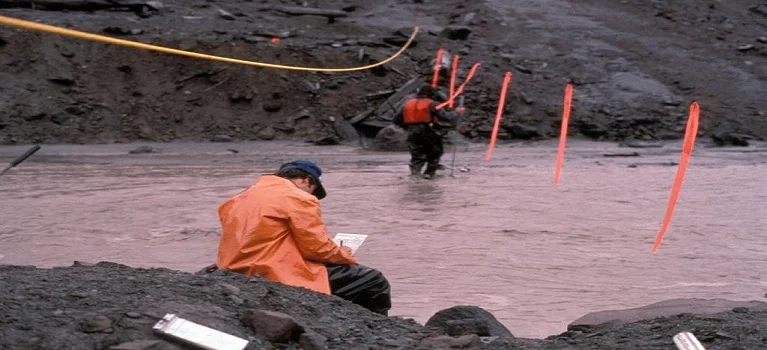Hydrologists are the unsung heroes of our water resources. They play a vital role in understanding, managing, and protecting the world's most precious resource – water. If you're fascinated by the movement, distribution, and impact of water on our planet, then a career in hydrology might be the perfect fit for you.
This guide delves into the exciting world of hydrology, exploring the work environment, educational requirements, essential personality traits, and potential career paths. We'll also shed light on the earning potential and future job outlook for hydrologists.
Hydrologist - Work Environment
⦿ Spend time in both field and office settings
⦿ Fieldwork can involve travel to lakes, rivers, and other water sources
⦿ Collect data, monitor equipment, and analyze samples
⦿ Work in government agencies, engineering firms, environmental consultancies, or research institutions
⦿ May collaborate with engineers, geologists, biologists, and policymakers
Hydrologist - Education and Training
⦿ Bachelor's degree in hydrology, geology, environmental science, civil engineering, or a related field
⦿ Master's degree may be required for some positions
⦿ Strong foundation in math, physics, chemistry, and biology
⦿ Coursework in hydrology, water resources engineering, and environmental modeling
⦿ Internship experience in hydrology is valuable
Hydrologist - Personality and Interests
⦿ Strong analytical and problem-solving skills
⦿ Excellent attention to detail and accuracy
⦿ Enjoy working outdoors and in sometimes challenging environments
⦿ Effective communication skills to present findings to technical and non-technical audiences
⦿ Passionate about protecting water resources and the environment
Hydrologist - Pay
⦿ Median annual wage for hydrologists (as of May 2022): $99,320 https://www.bls.gov/oes/current/oes192043.htm
⦿ Salary can vary depending on experience, education, location, and employer
Hydrologist - Job Outlook
⦿ Employment of hydrologists is projected to grow 9% from 2022 to 2032, faster than the average for all occupations https://www.bls.gov/oes/current/oes192043.htm
⦿ Increasing demand for water management solutions due to climate change, population growth, and pollution
⦿ Opportunities in areas like flood control, drought mitigation, and water resource development
FAQ About Hydrologists
What does a hydrologist do?
Hydrologists wear many hats! Their core responsibility is to study the movement, distribution, and properties of water on Earth. This can involve:
⦿ Collecting water samples from rivers, lakes, and groundwater sources
⦿ Measuring streamflow and water levels
⦿ Analyzing water quality
⦿ Developing models to predict water availability and flooding
⦿ Designing water management plans for cities and agriculture
⦿ Studying the impact of climate change on water resources
What kind of education do I need to become a hydrologist?
A bachelor's degree in hydrology, environmental science, civil engineering, or geography is typically required for entry-level hydrologist positions. Some specialized positions may require a master's degree. Strong foundational knowledge in math, physics, chemistry, and biology is essential.
What skills do I need to be a successful hydrologist?
Hydrologists need a blend of technical and soft skills. Here are some key qualities:
⦿ Technical Skills: Data analysis, modeling, GIS (Geographic Information Systems), field measurement techniques
⦿ Soft Skills: Communication (written and verbal), teamwork, problem-solving, critical thinking, attention to detail
Is a career in hydrology a good fit for me?
If you're passionate about water, the environment, and solving problems, then hydrology could be a great career choice. You should also enjoy working both outdoors and in the office, and be comfortable with technical data and analysis.
What is the job outlook for hydrologists?
The job outlook for hydrologists is positive! The Bureau of Labor Statistics projects a 9% growth rate from 2022 to 2032, driven by increasing demand for water resource management, flood control, and environmental protection.
Where can I learn more about hydrology?
Several resources can help you learn more about hydrology. Here are a few suggestions:
⦿ The American Institute of Hydrology (AIH) https://www.aihydrology.org/
⦿ The National Ground Water Association (NGWA) https://www.ngwa.org/
⦿ The U.S. Geological Survey (USGS) Water Resources webpage https://water.usgs.gov/index.html



